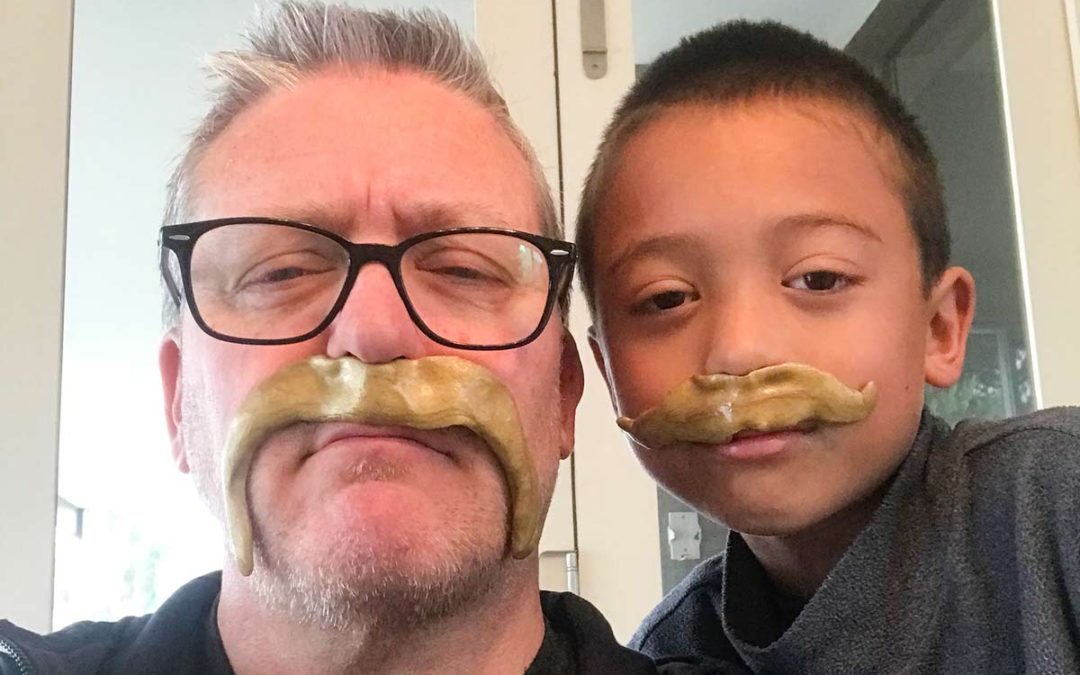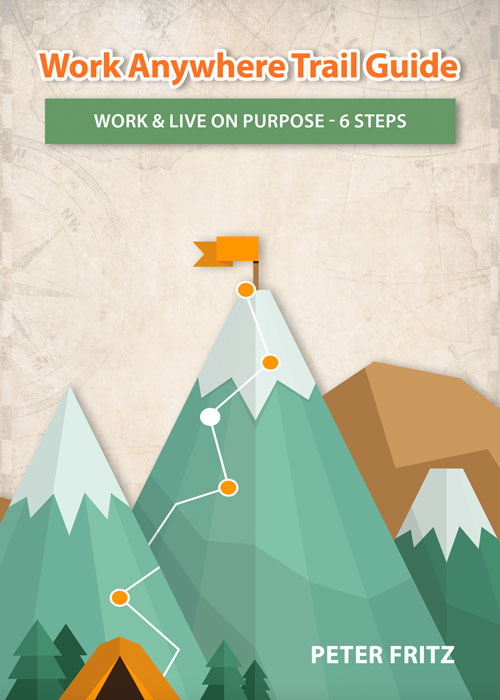[smart_track_player url=”http://traffic.libsyn.com/midlifetribe/Becoming_the_ultimate_parent_-_094.mp3″ background=”#f2f2f2″ social_gplus=”false” social_linkedin=”true” social_email=”true” ]
Unless your surname is Hilton, Arnault or Quandt, your kids probably won’t care how much you earn, what your title is, or what car you drive. They won’t demand you wear nicer clothes, whiten your teeth or get a bigger house.
However, if you ignore a few key principles around the relationship with your kids, they’ll likely care about all these things and dozens more as well.
Having struggled post-divorce to put my girls through private school, I’ve had a front-row seat to rich-kid entitlement. Ladies of leisure in Porsche Cayennes clutching Cucci accoutrements have been a regular sight over the last few years. Between lunching with the ladies and getting their hair done, they equip their offspring with the latest smartphone, send them shopping (with a platinum card), and then rent them a beach house to hang out with their troupe.
Thankfully, despite these frequent displays of inherited privilege, my girls have remained pretty much down-to-earth. They both know how hard it is to earn a dollar and how fast it goes when you try to impress other people. Despite the occasional dream of an easier life, they know free rides are temporary and manifestly damaging over the long term.
Both my girls have their own businesses and they possess the work ethic and grit to do the hard yards. I respect them enormously for that.
You can’t buy it.
 It’s easy to think we can buy our way to becoming the ultimate parent. If we clothe our kids correctly, take them to the right restaurants and stay on par with the Joneses in all the areas that matter, they’ll eventually immortalise us in song. But being a great parent isn’t aligned with dollar-spend. It isn’t rocket science, either. The fundamentals are straightforward and easy to remember. They are, however, counter-societal. Mainstream media, marketers and the social engines that drive the noise want parenting to seem complicated. They want success to be elusive, out of reach, and always packaged with a price – sometimes over 24 interest-free payments.
It’s easy to think we can buy our way to becoming the ultimate parent. If we clothe our kids correctly, take them to the right restaurants and stay on par with the Joneses in all the areas that matter, they’ll eventually immortalise us in song. But being a great parent isn’t aligned with dollar-spend. It isn’t rocket science, either. The fundamentals are straightforward and easy to remember. They are, however, counter-societal. Mainstream media, marketers and the social engines that drive the noise want parenting to seem complicated. They want success to be elusive, out of reach, and always packaged with a price – sometimes over 24 interest-free payments.
But it’s all bullsh*t.
I’ve always known this was the case thanks to the way my own childhood played out. Now, with almost two decades as a parent under my belt, I’ve seen the evidence from both ends of the equation, and my assessment remains the same.
Beyond their basic needs, you can’t buy your kids’ happiness or their love any more than you can buy their favourite colour. In my experience both as a child and a parent, it only takes three things to ensure a loving, respectful and loyal relationship with your kids.
Time beats everything.
Time is precious, limited and finite. Where you spend your time is where you spend your life. Time is the most valuable currency you have, so when you give some it away, it’s gone forever. Think about all those meetings you’ve attended, the pointless ‘shop-talk’ conversations, the months and years wasted in traffic. Gone forever.
But here’s the funny thing about time. Like money, you can waste it or you can invest it. Money spent on a $1,000 dinner is gone forever. Half of the $50k you blow on a new car vanishes in the first two years, along with all the interest payments if you’re dumb enough to borrow for it.
But buy a pre-owned car instead for $25k and invest the other $25k in a mutual fund for a 7% return and in ten years you’ll have $50k.
It’s the same with time. When I was a kid, my dad started work at dawn and was home by 4:30 every day. That way, he could (and did) spend time with us kids. We’d watch our favourite TV shows like M*A*S*H*, The Six Million Dollar Man and Fantasy Island. We’d play cards or Scrabble, we’d fix things in the shed, and every night, we’d walk the dogs on Mt Martha golf course.
This gave me endless opportunities to talk about things, to share ideas and to vent my teenage frustrations. He’d listen and acknowledge the challenges I faced. Other times, he’d offer hands-on practical advice, and he’d get in there and help however he could. He was there for me.
We also spent half a dozen wonderful years camping together in the Victorian High Country. We rode motorbikes together and we had 4WD adventures in the deserts. It was magical.
Had my father been a typical status/money-chasing workaholic like so many of his peers, none of this would have happened. He’d have bought me a computer and a motorbike and hoped I wouldn’t bother him too much.
Because he invested his time in me, we both benefitted. He reckons I saved his sanity as much as he helped mine.
And now I’m passing this practice onto my kids. My girls haven’t lived with me since they were little (their mum and I divorced a decade ago), but I’ve always had (and still have) plenty of time for them. Likewise, my 7-year-old son (who does live with me) knows I’m always available for him. We play together every day, and already we’re having some adventures together. Last week, we drove out to the edge of the desert just for the hell of it, and the day after, we drove down the coast to visit my mum. It was so much fun.

Likewise, just yesterday, my 16-year-old daughter texted me at 2:00 am to say she missed me and could we have lunch that day. So we did, and it was beautiful.
The point in all this is simple. When you invest time in your kids, when you actually block out parts of your schedule to be with them, you’ll get it back ten-fold. And best of all, they’ll pay it forward to their kids, too.
Listen more. Judge Less.
A couple of years ago, my ex-wife and I took part in a six-week workshop at my daughters’ school to learn more about managing teenagers. One thing that struck me (apart from how often my ex and I took the piss out of everyone) was how slowly our brains develop. In the beginning, when we’re very little, the synaptic connections grow like wildfire. But the ones that prevent us from making stupid, life-altering decisions don’t develop until our early twenties. This probably explains why I thought doing 300 km/h on a public road when I was 21 was perfectly fine. Or why drinking a full glass of straight Scotch didn’t seem irresponsible until I collapsed on a bluestone floor.
This newfound understanding of kids’ brains helped solidify a practice I find useful. Whenever I’m with my kids, I make a deliberate effort to do two things:
- Remember how I thought and behaved at their age.
- Temper any expectations or advice I offer based on # 1.
We can’t expect a 16-year-old to have a 40-year-old’s reasoning capacity any more than a man can expect to understand childbirth.
Listen to your kids. Remember what you were like at their age. Recognise and acknowledge that their ‘trivial’ concerns are monumental for them – just as they were for you at their age.
It’s not your job to solve everything.
This one dovetails into the other. You can’t solve all your kids’ problems, and you shouldn’t even if you could. Your job is to teach them how to navigate their way through problems so they can find bigger and better ones to solve.
Parents who throw money at every problem deny their kids the opportunity to develop vital life skills. Whether it’s vanity, impatience or ignorance at play, solving all your kids’ problems will only weaken them and make them vulnerable. Definitely, prevent them from taking stupid and unnecessary risks if you can, but let them make a few of their own.
My order of concerns with my kids has always been:
- Are they safe?
- Are they happy?
- Are they becoming who they want to be?
Also, if you can help them understand money as soon as possible, you’ll save them a lifetime of completely unnecessary stress. This includes:
- How it’s really made
- How to create value
- How to save
- How to invest
- How compounding works
- How leverage works
The Threat and the Shortcut
People are more stressed than ever before. Depending on where you live, it’s likely you spend most, if not all the money you earn. If you live in the US or Australia, there’s a 75% chance you hate your job.
We’re conditioned to believe that that best way to deal with all this is to consume more, aspire more, have more. Always more.
Technology moves quickly but we humans evolve slowly. Our physical and psychological needs haven’t changed in thousands of years, yet we keep trying to function like computers or microwave ovens. We’re working more, commuting more, spending more and borrowing more. We’re trying to squeeze more of everything into ever-shrinking timeframes. In our race to achieve the ‘good life’, whatever the hell that means, we’ve forgotten what matters most – having fun with those we care about. And that, my friend, threatens the very things we hold dear.
 If we love our kids as much as we claim, we should each put a microscope on where we spend our time.
If we love our kids as much as we claim, we should each put a microscope on where we spend our time.
Remember it’s our time they value most. And like any good investment, giving our time to those who matter will return dividends that’ll sustain us for the rest of our lives. I believe this is the clearest shortcut to restoring and nurturing our most important relationships. There were many times I was tempted to give up my work-from-home regime – either for more money or more status, but I’m glad I never succumbed. Being around for my kids – through illnesses, school concerts and dance classes – has been the best investment I ever made.
My kids can’t describe the job I do for money, but each of them knows the job I do for them – trying to be the best parent I can.
Peter
.
[ss_click_to_tweet tweet=”In our race to achieve the ‘good life’, we’ve forgotten what matters most – spending time with those we care about most; our kids.” content=”In our race to achieve the ‘good life’, we’ve forgotten what matters most – spending time with those we care about most; our kids.” style=”5″ link=”1″ via=”1″]
The Ultimate Goal – A Dedication to Jon James
Yesterday, a giant in my life called up to offer his final farewell. Today, he married his true love, Aurelia, before entering palliative care. He’s only 64, he’s athletic, and he's stronger than most 30-year-olds. But when cancer takes hold, it doesn’t care. Jonathon...
What are the first steps to starting a side business that makes you money?
[fusebox_track_player url="https://www.buzzsprout.com/1079927/5461972-what-are-the-first-steps-to-starting-a-side-business-ep-115.mp3?blob_id=22247092&download=true" title="What are the first steps to starting a side-business? - EP 115" social_linkedin="true"...
The purpose of purpose
[fusebox_track_player url="https://www.buzzsprout.com/1079927/5195959-the-purpose-of-purpose-ep-114.mp3?blob_id=20946406&download=true" title="The Purpose of Purpose - EP 114" social_linkedin="true" social_email="true" ]Recorded with SquadCastSubscribe: iTunes |...
Download the Guide





